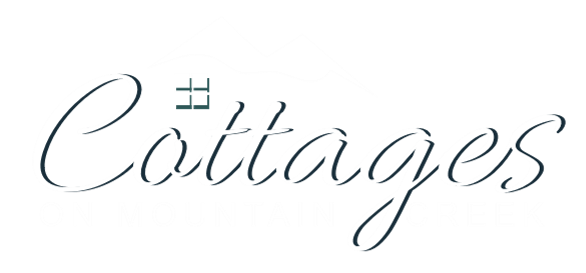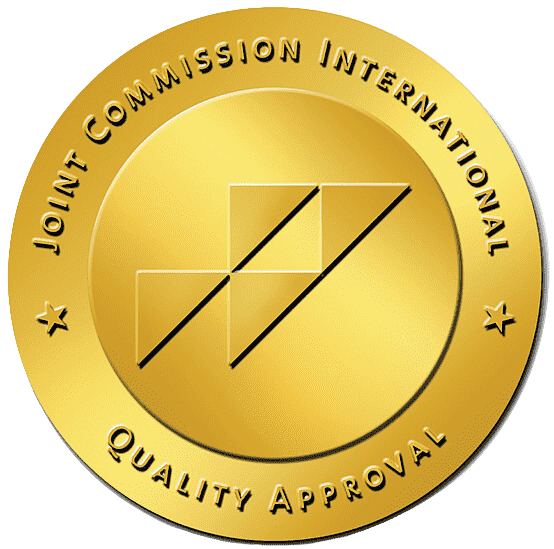Understanding IOP Treatment
Definition of IOP Treatment
IOP stands for “Intensive Outpatient Program.” These programs are designed to treat individuals with substance use disorders and co-occurring mental health disorders. Participants typically engage in treatment at least 9 hours per week, usually delivered in three 3-hour sessions. Treatment settings can range from hospitals and rehab facilities to community centers and clinics. IOPs offer a flexible and structured approach, allowing individuals to continue with their daily responsibilities while receiving comprehensive care.
| Element | Details |
|---|---|
| Acronym | IOP – Intensive Outpatient Program |
| Treatment Hours | Minimum 9 hours per week (3 x 3-hour sessions) |
| Duration | 2 weeks to 3 months |
| Settings | Hospitals, rehab facilities, community centers |
Benefits of IOP Treatment
Participating in an IOP offers numerous benefits for individuals seeking behavioral health treatment and mental health treatment. Some of the key advantages include:
- Flexible Scheduling: IOPs allow participants to maintain their daily routines, making it easier to balance work, school, or family obligations.
- Cost-Effective: Compared to residential treatment programs, IOPs are generally more affordable, as they do not require a full-time stay at the treatment facility.
- Access to Comprehensive Care: IOPs provide a range of therapeutic services, including group therapy, individual counseling, and life skills classes. This holistic approach is beneficial for those with dual diagnosis treatment needs.
- Community Support: Participants in IOPs have the opportunity to build a supportive network by interacting with peers who are going through similar experiences.
- Continuity of Care: IOPs serve as an important step in the continuum of care, helping individuals transition smoothly from more intensive inpatient programs to less intensive day programming or transitional independent living programs.
IOPs’ effectiveness in treating substance use disorders and co-occurring mental health disorders is supported by data. In the US in 2011, there were 6,089 programs offering IOPs, serving 141,964 patients. This accounted for 12% of the 1.2 million patients in care for alcohol and drug use disorders.
By offering flexible, cost-effective, and comprehensive care, IOP treatment helps individuals take significant steps toward lasting recovery.
For more specifics about IOP and how it compares to other forms of treatment, visit our section on Comparing IOP to Other Options.
Tailoring Treatment Services
At Cottages on Mountain Creek, we believe in the power of personalized care to enhance the effectiveness of our IOP treatment. By tailoring our treatment services to meet the unique needs of each individual, we help our clients embark on a successful wellness journey.
Individualized Treatment Plans
Individualized treatment plans are crucial for addressing the specific needs of our clients. Each person’s mental health condition, history, and lifestyle are unique, and so are their treatment needs. We start by conducting comprehensive assessments to understand the psychological, medical, social, and legal aspects of our clients’ lives (NCBI Bookshelf).
Here’s what we include in our individualized treatment plans:
- Initial Assessment:
- Psychological Evaluation
- Medical History
- Social and Environmental Factors
- Legal Issues
- Customized Interventions:
- Behavioral Therapy
- Individual Counseling
- Group Therapy
- Continuous Monitoring:
- Regular Check-ins
- Progress Tracking
- Adjustments to Treatment Plan
Our commitment to personalized care ensures that our clients receive the most effective and compassionate treatment possible. The tailored approach results in better engagement and outcomes, often leading to substantial reduction in symptoms and improved quality of life.
Psychiatric and Medical Support
The integration of psychiatric and medical support is an essential component of our IOP treatment. Mental health issues often coexist with physical health problems, and addressing both is critical for holistic recovery.
Our psychiatric and medical support includes:
- Psychiatric Evaluations:
- Diagnostic Assessments
- Medication Management
- Crisis Intervention
- Medical Care:
- Regular Health Check-ups
- Coordination with Primary Care Physicians
- Management of Co-occurring Disorders
- Case Management:
- Housing Support
- Employment Assistance
- Legal Advocacy
| Type of Support | Services Provided | Frequency |
|---|---|---|
| Psychiatric Support | Diagnostic Assessments, Medication Management, Crisis Intervention | Weekly |
| Medical Care | Health Check-ups, Coordination with Primary Care, Co-occurring Disorder Management | Monthly |
| Case Management | Housing, Employment, Legal Support | As Needed |
Providing comprehensive psychiatric and medical support ensures that our clients’ health is addressed on multiple fronts. This integrated approach helps in managing both the psychological and physiological aspects of their conditions.
By offering individualized treatment plans and comprehensive psychiatric and medical support, we aim to provide the highest quality of mental health treatment available.
For more information about our treatment services, visit our pages on behavioral health treatment and substance abuse treatment.
Maximizing IOP Effectiveness
To ensure that our Intensive Outpatient Programs (IOP) provide the best possible outcomes for our clients, we employ several strategies aimed at improving retention and integrating mutual-help programs.
Strategies for Retention
Retaining clients in IOP programs is essential, as early termination can lead to an increased risk of relapse. We implement various strategies to promote retention:
- Conducting preadmission interviews helps us understand clients’ needs and expectations.
- Delivering reminders for appointments via phone calls or messages reduces missed sessions.
- Decreasing appointment delays ensures our clients receive timely care.
By using these techniques, we aim to minimize disruptions in our clients’ treatment progress.
| Retention Strategy | Description |
|---|---|
| Preadmission Interviews | Understands clients’ needs and expectations |
| Appointment Reminders | Reduces the chance of missed sessions |
| Decreasing Delays | Ensures timely care for clients |
Integration of Mutual-Help Programs
Incorporating mutual-help programs, such as 12-Step programs, into our IOP can lead to better outcomes for our clients (NCBI Bookshelf). These programs offer support beyond the professional counseling services we provide, helping clients build a strong recovery network.
Mutual-help programs work by:
- Emitting a sense of community and shared experience.
- Supporting clients in maintaining long-term sobriety.
- Providing additional accountability and motivation.
We facilitate successful integration into these programs by:
- Assisting clients in finding local meetings.
- Offering transportation to meetings, if needed.
- Providing ongoing support throughout the process.
| Mutual-Help Program Advantage | Description |
|---|---|
| Community Support | Shared experiences and communal connections |
| Long-term Sobriety | Continuous support to maintain sobriety |
| Accountability and Motivation | Extra layers of support for staying on track |
By focusing on retention strategies and incorporating mutual-help programs, we enhance the effectiveness of our behavioral health treatment services. This comprehensive approach ensures that our clients receive the support they need at every stage of their recovery journey. For those also in need of additional support, explore our dual diagnosis treatment and residential treatment options.
Transitioning Levels of Care
From Inpatient to IOP
At Cottages on Mountain Creek, we understand that transitioning from inpatient treatment to Intensive Outpatient Programs (IOP) can be a pivotal step in one’s mental health journey. Inpatient treatment offers around-the-clock support and monitoring, ideal for patients who require 24-hour medical supervision and support, especially in cases of active suicidality, violence, aggression, or dangerous behavior.
When a patient becomes safe and stable during inpatient treatment, our treatment team may recommend transitioning to a lower level of care. This transition to IOP allows patients to continue receiving structured support while gradually resuming daily activities. Our IOP treatment replicates many of the therapeutic services offered in inpatient settings, ensuring continuity in the care provided (American Addiction Centers).
| Inpatient Care | Intensive Outpatient Program (IOP) |
|---|---|
| 24-hour medical supervision | Part-time, flexible scheduling |
| Intensive, controlled environment | Integration of therapy with daily life |
| Ideal for severe cases | Suitable for stable patients |
Transitioning to PHP Programs
For patients who need more intensive support than what IOP offers but do not require constant inpatient care, Partial Hospitalization Programs (PHP) serve as an effective bridge. PHP provides a structured and therapeutic environment, allowing patients to receive comprehensive treatment during the day while returning home in the evenings.
At Cottages on Mountain Creek, our PHP treatment supports patients in their recovery journey by offering a high-level of care with a focus on therapeutic intervention and medical support. This level of care is perfect for individuals who are transitioning from inpatient treatment and require a gradual step-down in intensity.
| Partial Hospitalization Program (PHP) | Intensive Outpatient Program (IOP) |
|---|---|
| Full-day treatment sessions | Flexible, part-time sessions |
| Intensive therapeutic and medical support | Combines therapy with work/school life |
| Ideal for those needing more than IOP offers | Suitable for those needing a step-down from inpatient |
Understand your treatment options and make informed choices about your mental health care. Explore more about mental health treatment and related services such as dual diagnosis treatment and substance abuse treatment available at Cottages on Mountain Creek. If you wish to transition to another level of care like day programming or residential treatment, our team is here to guide you every step of the way.
Comparing IOP to Other Options
When considering mental health treatment options, it is crucial to understand the differences and benefits of Intensive Outpatient Programs (IOPs) compared to other forms of treatment such as inpatient care. This section provides a detailed comparison to help individuals and their families make informed decisions.
IOP vs. Inpatient Treatment
Inpatient Treatment offers 24-hour medical supervision and support. This level of care is typically recommended for individuals who require constant monitoring due to severe mental health issues or risky behaviors, such as active suicidality or aggression. The comprehensive nature of inpatient care significantly increases its cost, as it includes room and board.
Conversely, IOPs (Intensive Outpatient Programs) provide a balance between intensive care and flexibility. Individuals reside either at home or in a sober living environment while attending therapy and counseling sessions at the treatment facility. This arrangement allows them to maintain daily responsibilities such as work or school, and IOPs generally cost less because they do not offer round-the-clock care (American Addiction Centers).
Here’s a summary comparison:
| Aspect | Inpatient Treatment | IOP Treatment |
|---|---|---|
| Level of Care | 24/7 supervision and support | Regular therapy sessions |
| Living Arrangements | Facility-based | Home or sober living environment |
| Cost | Higher due to room and board | Lower without 24/7 care |
| Suitable For | Severe cases needing constant monitoring | Needs intensive care but can manage without 24/7 supervision |
Effectiveness of IOP Programs
Research indicates that IOPs are just as effective as inpatient residential treatments for substance abuse and mental health conditions. Studies show that both IOPs and inpatient treatments result in substantial reductions in substance use and improved mental health outcomes by the end of the programs. Additionally, treatment services in both settings are nearly identical, leading to comparable long-term success rates.
A study found that around 50% to 70% of participants in substance abuse IOPs reported abstinence at follow-up, suggesting that the setting (inpatient vs. outpatient) does not significantly impact outcomes. Instead, the effectiveness of IOPs is attributed to the intensity and duration of the treatment provided.
Here’s a summary of effectiveness:
| Treatment Option | Reported Abstinence Rate | Comparable Outcomes |
|---|---|---|
| Inpatient Treatment | 50% to 70% | Yes |
| Intensive Outpatient Programs (IOPs) | 50% to 70% | Yes |
For those considering transitioning to lower levels of care, IOPs offer a blend of intensive support and the flexibility to reintegrate into daily life. Learn more about transitioning from inpatient to IOP here, and explore the options for moving to PHP Programs if additional support is needed.
Whether choosing inpatient or outpatient treatment, both options offer substantial benefits. It is essential to consult with medical professionals to determine the best course for your specific needs. For more detailed information on our treatment options and how we can support you, visit our page on behavioral health treatment and mental health treatment.
Enhancing IOP Success
Our goal is to ensure the effectiveness and success of Intensive Outpatient Programs (IOP) by integrating evidence-based practices and providing ongoing support. These methods not only improve treatment outcomes but also help individuals maintain their recovery long-term.
Integrating Evidence-Based Practices
To maximize the effectiveness of IOP treatment, we incorporate a variety of evidence-based practices. Two of the most impactful practices include cognitive-behavioral therapy (CBT) and motivational interviewing (MI). These methodologies have been proven to significantly enhance the success rates of individuals undergoing IOP.
Cognitive-Behavioral Therapy (CBT)
CBT focuses on identifying and changing negative thought patterns that contribute to problematic behaviors. By addressing these cognitive distortions, individuals are better equipped to manage triggers and reduce the risk of relapse.
Motivational Interviewing (MI)
MI is a counseling approach that helps individuals resolve their ambivalence towards recovery. This method encourages self-motivation and commitment to change, aiding in the long-term success of the treatment.
Effective integration of these evidence-based practices helps reinforce positive behaviors and fosters a strong foundation for continual recovery.
Providing Ongoing Support
Ongoing support is crucial for sustaining the progress made during IOP. Post-treatment follow-ups and continuous care strategies help individuals remain committed to their recovery journey.
Continuous Care
Following the completion of IOP, we offer additional support through day programming and transitional independent living programs. These programs provide a structured environment that reinforces the skills learned during IOP.
Regular Check-Ins
Regular check-ins and follow-up sessions are essential components of our aftercare plan. These sessions help monitor progress, address emerging issues, and provide additional resources as needed.
Providing continuous support ensures that individuals do not feel isolated post-treatment and have access to the resources necessary to maintain their recovery. For more detailed options, explore our dual diagnosis treatment and residential treatment.
By integrating evidence-based practices and providing ongoing support, we significantly enhance the success rates of our IOP, ensuring that individuals receive comprehensive care and are well-supported throughout their recovery journey. For more information on our services, visit our page on mental health treatment.




